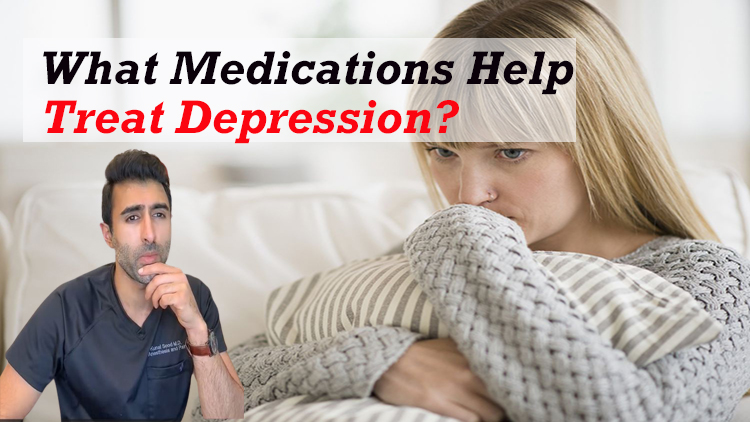
It doesn’t take much to start your weight loss journey.
Every weight loss journey is a personal one. Because a lot of information is available for beginning the path to weight loss, it can take a lot of work to figure out how to get going. Still, there are ways to ease yourself into losing weight, like changing what and how you eat and getting better sleep.
However, weight and body mass index (BMI) are not always accurate indicators of overall weight. For example, BMI does not consider body composition, ethnicity, sex, race, and age. Likewise, there is no “normal” body weight, and certain foods and behaviors are not “good” and “bad.”
Consult a healthcare provider if you plan on starting a weight loss journey. For example, a registered dietitian nutritionist can help ensure you get enough nutrients and offer tips that fit your needs. Also, if you have a history of disordered eating, talk to a mental healthcare provider before changing your eating patterns.

Weight and Health
Research has found no singular, universal diet for weight loss. Instead, weight loss depends on each person’s unique goals and needs. Also, the best diet is one that you can maintain for long periods.1
Therefore, setting realistic goals is key before kickstarting a weight loss journey.2 Generally, weight loss depends on the amount and type of food you eat and when you eat your meals.1 From there, some evidence suggests that your personal goals should fulfill your nutritional needs, be safe and effective, culturally acceptable, and be inexpensive.2
Consulting a healthcare provider may help you figure out your personal goals. For example, a healthcare provider can identify areas you can improve. For example, if you eat out several times per week, you might limit eating out to every Friday. Or, if you find yourself eating for emotional reasons, a healthcare provider can help you adopt other coping skills.
After identifying those areas and making changes, keeping track of your habits helps monitor and maintain your weight loss journey. Then, regularly check in with a healthcare provider to update your goals as needed.3
Factors That Affect Weight Loss
Several factors may affect your ability to lose weight, like:45
- Social determinants of health: Where you live and work can influence your diet. For example, some communities might have different access to fresh fruits and vegetables than others.
- Health conditions: Some diseases impact a person’s ability to lose weight. For instance, illnesses that cause hormonal changes and insulin resistance can cause obesity. Examples include polycystic ovary syndrome (PCOS), Cushing’s disease, and diabetes.6 Also, mental health conditions that impact how you manage stress can also lead to weight gain.
- Medications: Steroids and antidepressants may cause weight gain.
- Genetics: In some cases, overweight and obesity run in families. For example, your genes may determine how your body stores fat.
How To Kickstart Weight Loss
There are a few lifestyle changes that you can implement to kickstart your weight loss journey. However, keep in mind that certain foods and behaviors are not “good” or “bad.” You can still make room for your favorite indulgences in moderation.
Fill Your Meals With Vegetables
Adding more vegetables to your diet can help you start losing weight. Vegetables are rich in nutrients like magnesium and vitamin A. Magnesium helps build strong bones, while vitamin A supports your immune system and eyesight.78
Vegetables are also low in calories but high in both fiber and water. By making vegetables the main meal staple, you’ll eat fewer calories without giving up nutrition. Also, the fiber will add bulk to your meals, satiating your appetite and helping you feel full.
The amount of vegetables you ought to eat depends on factors like age or activity.9 A good place to start would be to have at least one to two cups (a cup is the size of a tennis ball) at each meal, including breakfast.
For breakfast, you could scramble a few eggs with the following:
- Italian seasoning
- Turmeric
- Black pepper
- A handful or two of chopped vegetables (e.g., spinach, tomatoes)
You can also enjoy your scramble with a side of fresh fruit.
Then, at lunch, opt for a salad or include ingredients on a sandwich or wrap, like lettuce or tomato.10 Add vegetables to grain dishes at dinnertime, such as quinoa with roasted vegetables or whole grain pasta with sautéed broccoli. Or spiralize, chop, or shred vegetables to create fun alternatives like zoodles (zucchini noodles) with pesto or tomato sauce.
Cauliflower rice is another good option. Take four cups of cauliflower florets and chop them using the pulse feature on a food processor until they look like rice grains.
To complete a meal and ensure you’re getting essential macronutrients, include a lean protein source, such as salmon, chicken breast, or lentils. Then, add a healthy fat, like avocado, nuts, or seeds.
What Are Healthy Fats?
Healthy fats consist of unsaturated fats in foods from plants and animals, like monounsaturated and polyunsaturated fats. Those healthy fats have several health benefits, like:
- Lowers LDL (“bad”) cholesterol, which helps protect your heart
- Protects against dry eyes
- Reduces inflammation
- Promotes the functions of your brain and nervous system
Be Mindful of Your Drinks
Opting for certain drinks can lead to weight loss, too. One review published in 2022 in JAMA Network Open found that drinking low- and zero-calorie sweetened beverages rather than sugar-sweetened beverages helped lower body weight and fat percentage.13
Water is also a great choice since it has benefits beyond helping manage weight. Drinking water keeps you hydrated, protects your spinal cord, and helps your body get rid of waste.14 You do not have to give up coffee in the morning, but be sure to include a side of water.
Also, if you don’t love the taste of water, add flavor by using the following:
- Fresh mint
- Basil
- Ginger root
- Mashed berries
- Squeezed lemon, lime, or orange
Consider experimenting with teas, as well. Many teas, like green tea, are rich in antioxidants.15
Of note, people can lose water from the body in many ways, like sweating more if they’re very active, being sick with a fever, or living at high altitudes or temperatures. Those and other factors (e.g., age, sex) determine if a person should consume more or less water daily. In other words, not everyone will have the same daily water needs.1617
Snack Throughout the Day
Snacking is a great way to increase nutrition and energy between meals when you are hungry. Aim to choose snacks that contain fiber, fat, and protein. Those snacks will keep you satisfied and provide essential nutrients.18
Consider the following snacks, for instance:
- Nuts or seeds along with fruit
- A cup of raw vegetables with hummus or roasted chickpeas
- String cheese or yogurt
- Air-popped popcorn
Although, keep in mind that snacks can be for pleasure, as well. Incorporate some of your favorite indulgences throughout the week.
Get Enough Sleep
Chronic insufficient sleep can increase the risk of type 2 diabetes and heart disease.19 A lack of sleep may also result in weight gain.
According to a 2019 study, people who slept for shorter periods had increased hunger, food cravings, food reward, and food intake the next day compared to people who slept longer.20
What Is Food Reward?
Food reward concerns how a person measures the short-term value of food (e.g., if they like or dislike it) while they eat it.20
Also, some evidence suggests poor sleeping patterns increase snacking on high-carb and high-fat foods.21
Generally, quality sleep promotes successful weight loss. Aim to get the quality sleep you need, which is at least seven hours for adults. Engaging in good sleep hygiene, like going to sleep at the same time every night and limiting time spent looking at screens, can also help you get quality sleep.
A Quick Review
It can take a lot of work to start when you want to lose weight. Fortunately, you can do a few things that can help, such as adding more vegetables to your diet and opting for low-calorie drinks or water. Practicing good snacking and sleeping habits can also benefit weight loss efforts.
If you need help kickstarting your weight loss, consulting a healthcare provider can help. For example, a registered dietitian nutritionist can offer guidance and insight on how to help you lose weight.






